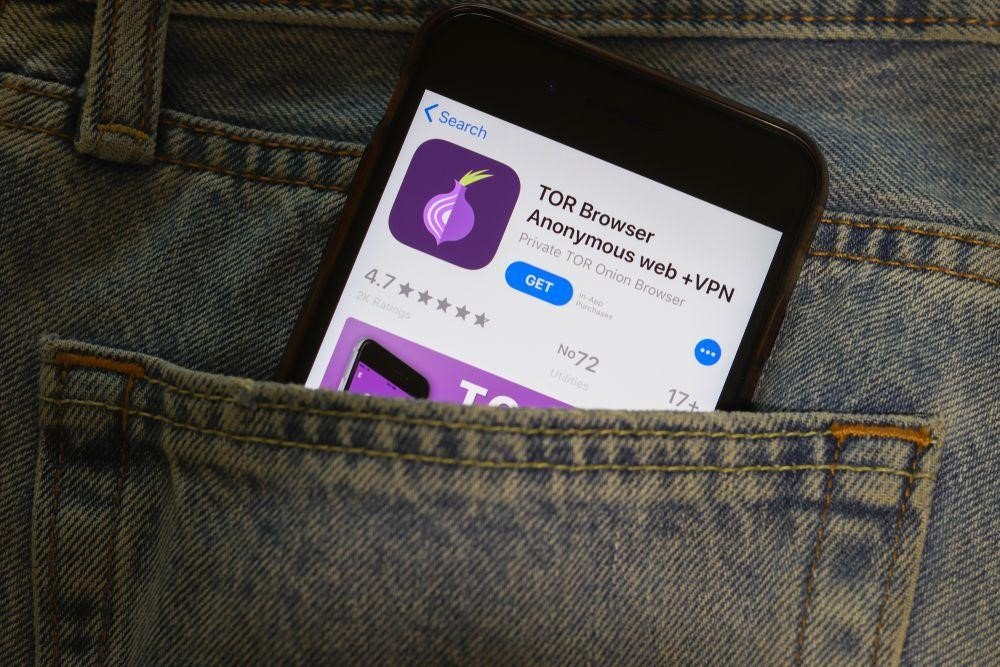Choosing the right web browser makes a huge difference to your daily internet experience, whether it’s improved performance, higher levels of security, or enhanced functionality thanks to downloadable extensions.
However, many people find it difficult to step outside of their comfort zone and try a different browser. Your current browser may not be the best one even on the best device, but you’ve probably gotten used to its quirks over the years without realizing that there are better options out there that will make your life easier.
In this article, we’ll look at the most popular browsers and their benefits that you may not know about, to help you choose the one that best suits your needs. If you’re having trouble, read on to find out if there’s a browser that’s best for your needs.
The best browsers at first glance
1. Mozilla Firefox

Firefox is back after a major upgrade, and it’s reclaimed its crown
Operating system: Windows, MacOS, Linux, Android, iOS
- High speed
- Saving system resources
- Privacy Protection
- Android version needs to be updated
Firefox recently made its biggest update in 13 years, and it’s so impressive that it propelled the browser to the top of our list.
Firefox has always been known for its flexibility and extension support, but in recent years it has begun to lag behind its competitors in terms of speed. Firefox Quantum, first released last year, is a complete overhaul of the browser’s codebase that now offers speeds comparable to Google Chrome. And it’s not just for high-end computers — the new Firefox is designed to use RAM sparingly, even with tons of tabs open.
Firefox also gets extra points when it comes to privacy. Mozilla is a nonprofit, meaning it doesn’t have the same incentive to sell your data as some other browser makers. The organization also regularly releases updates to help protect its users’ privacy as internet companies come under increasing scrutiny over how they handle people’s data. Recent additions include support for passwordless logins and automatic blocking of ad trackers.
There’s even a new version of Firefox designed specifically for browsing in VR, and Mozilla frequently tests new features through its recently launched Test Pilot program.
It’s not always the fastest way—for some pages, Chrome still has the edge—but the new Firefox takes things to the next level and is our pick for the best web browser of 2024 so far.
Overall Rating: 4.5/5
Official website: Mozilla Firefox
2. Google Chrome

It’s the world’s favorite browser, but it’s seriously memory hungry.
Operating system: Windows, MacOS, Linux, Android, iOS
- Fast performance
- Infinitely expandable
- Multiplatform
- Consumes a lot of RAM
With Chrome, Google has created a scalable and effective browser that deserves its place at the top of the browser charts. Its user base is only growing, even as Microsoft Edge’s install base is supposedly growing. Why? Well, it’s cross-platform, incredibly stable, brilliantly presented, takes up minimal screen space, and is just about the best browser you can use.
The wide range of easily available and installed extensions means you can really make it your own, plus there’s support for parental controls and a huge range of tweaks and add-ons to ensure maximum effectiveness.
However, Chrome isn’t without its flaws. It’s one of the heaviest browsers in terms of resource usage, so it’s not great on machines with limited RAM, and its performance doesn’t quite match up to others in benchmark testing. And with Google’s tentacles snaking through it, you may be uncomfortable with how your browsing data is being used.
However, Google is making some strides in security, and is pushing HTTPS in particular. Like Firefox, Chrome now also supports passwordless login via WebAuthn, either to replace traditional passwords entirely or to use as a form of two-factor authentication.
The browser also offers more options for web app developers, including a more consistent experience across different VR headsets and the ability to use data from sensors (such as your device’s light sensor and accelerometer).
Overall Rating: 4.3/5
Official site: Google Chrome
3. Opera

An underrated browser is a great choice for slow connections
Operating system: Windows, MacOS, Linux, Android, iOS
- Integrated ad blocker
- Strong security features
- Built-in VPN
- Fewer plugins than competitors
It’s sad that Opera only has about 1% of the browser market because it’s a really good browser. It starts up quickly, the user interface is brilliantly clean, and it does everything its rivals can do.
The main reason we’d at least recommend installing Opera alongside your main browser is its Opera Turbo feature. This compresses your web traffic by routing it through Opera’s servers, which makes a huge difference to browsing speed if you’re stuck on a remote dial-up connection or have a broadband connection.
This also reduces the amount of data transferred, which is handy if you’re on a mobile connection, and this redirection also removes any content restrictions your ISP may have on your browser, which can be very handy. Opera automatically dodges if you’re using secure sites like banks, so your traffic is free and clear of any potential privacy breaches.
There’s also a built-in ad blocker – which can be disabled if you’re morally inclined in that direction – a battery saving mode that promises to make your laptop last longer, a built-in VPN, and a cryptocurrency wallet.
If you’re a PC gamer, you might also want to check out Opera GX, a version of the browser that includes system optimization tools, Twitch integration, Razer Chroma support, and a catalog of gaming deals.
Overall Rating: 4.1/5
Official website: Opera
4. Microsoft Edge

Edge is reborn as a smart and fast browser based on Chromium
Operating system: Windows, MacOS, Linux, Android, iOS
- Not as memory intensive as Chrome
- Available for almost all platforms
- Supports Chrome extensions
- Actively promoted in Windows
Edge got a pretty cool reception when it first launched on Windows 10 as a replacement for the venerable Internet Explorer, but it experienced a resurgence earlier this year when Microsoft partnered with Google to release a new version of Edge based on Chromium (the engine used by Chrome).
The new and improved Edge is an impressive browser that offers most of the benefits of Chrome without taking up too much memory. Microsoft has also brought its own expertise to the table, sharing its knowledge and experience with Google (like smooth scrolling for low-spec PCs).
Best of all, the new Edge isn’t limited to Windows 10 PCs, and Microsoft has released versions for Android, iOS, and macOS. It looks like a Linux version is on the way, too (to the surprise and confusion of open source fans). With all the major platforms covered, the new Edge is well worth considering as the new main browser.
It’s just a shame that it’s being pushed so heavily within Windows itself, which can be frustrating if you’ve set another browser as your default.
Overall rating: 4/5
Official website: Microsoft Edge
5. Vivaldi

Create your own browser with unique dock and tab
Operating system: Windows, MacOS, Linux, Android (beta)
- Incredibly customizable
- Creative interface
- Supports Chrome extensions
- Not the fastest
The entire style and structure of its interface is entirely up to you. There’s a built-in note-taking system, you can pin sites as sidebars while using the main window for the main overview, and we love its innovative tab stacking technology, which lets you group tabs and move them around to avoid the clutter that often plagues other browsers.
Vivaldi is built on Chromium, which means you can extend it with extensions from the Chrome Web Store. Just select the plugin you want and click “Add to Chrome.” Some extensions may behave slightly differently in Vivaldi, but most work just fine.
Vivaldi is a refreshing and creative approach to web browsing that will be seen over the next couple of years as more features are added.
Overall rating: 4/5
Official page : Vivaldi
6. Yandex Browser

Yandex.Browser is the pride of Russian developers. And this is true – Yandex.Browser is among the most used web browsers among residents of the CIS. Its only competitor is Google Chrome, which has almost the same functionality, but the browser from Yandex is much more adapted to RuNet users. It is deeply integrated with Yandex online services: Music, Disk, Mail, Market, Traffic jams, voice assistant Alice, and so on.
By default, Yandex Browser offers many more features than its competitors. For example, it has built-in functions that are usually added as extensions: ad blocker, anti-shock, turbo mode, etc.
Among the features is the ability to turn on automatic turbo mode, which allows you to speed up the launch of pages with a slow Internet connection. Also, Yandex Browser has a pre-installed voice assistant Alice, which is an order of magnitude better than Google Assistant. Just like Chrome, Yandex allows you to easily synchronize with other devices through a single account.
It is worth mentioning some minor drawbacks – a rather oversaturated empty tab, which will require some tinkering to remove the excess. For example, in Chrome, the new tab looks quite minimalistic, but in Yandex it is some kind of chaos.
Advantages :
- integration of Yandex services;
- excellent synchronization between devices;
- high page loading speed;
- built-in extensions;
- voice assistant Alice.
Flaws :
- extremely unpleasant empty tab with many unnecessary buttons and animated background.
Official page : Yandex.Browser
Overall rating: 4/5
7. Tor

Tor is another variation of the Firefox browser for those who value privacy and security. It is unlikely to be suitable for regular use, as the connection speed is quite low. Before the data reaches the server, it must go through intermediaries to cover its tracks. The more nodes, the more difficult it will be to track the user, so you can’t dream of any high speed.
Most often, Tor is used for secure work when connecting via public wireless networks or to access blocked sites. These are not always illegal actions – sometimes legal sites that are simply “unlucky” can be blocked. For example, if a site is on the same IP address as the offender, it can easily be blocked. Also, in some cases, sites are blocked geographically – bypassing such protection for Tor is not a problem.
Advantages :
- high level of protection and anonymity.
Flaws :
- slow internet connection.
Official site : Tor
Overall rating: 4/5
Conclusion
When choosing the best browser for Windows, it is worth saying that there is no favorite – any of the above browsers can be the best for you. Today it is difficult to single out any giant that would have significant differences from competitors. If you need to scroll through the VK feed every day, watch news from Yandex, read articles on Community or just search for information on the Internet, then any web browser will do.
When working with multiple devices, I recommend paying attention to Google Chrome, Yandex Browser or Mozilla Firefox. This is the trio that has all the necessary functionality for working on multiple devices. In addition, each of these browsers has themes and add-ons that can greatly expand the functionality. I advise you to “touch” each of the browsers yourself, and then you will definitely find a favorite for yourself.
That’s all from me. Thank you for your attention!
























ОТВЕТИТЬ